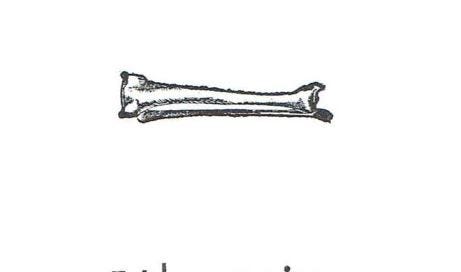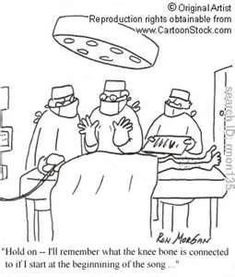Dear Reader,
My friend and I started carpooling to college together and have had many adventures on the road, as I’ve already extensively mentioned in Edition #2. We always used to leave late from our homes, somehow. The problem is that we’d park the car in college and had to cross a really dangerous and busy road to reach the hospital to get to our postings in the morning. I am the absolute worst at crossing roads, so my doubtfulness would lead to more time being wasted. We’d cross on over to the hospital and since running inside a hospital would be a rather weird sight, we’d power walk (which, now I think about it, looks even more out of place) until our legs couldn't take no more, and walk into the department only a mere few minutes late. Time and time again we’d still arrive at the correct time, I still don’t know how.
Once you reach second year in medical school, your mornings are consumed in going to different departments in the hospital, observing doctors examining and treating patients, and if you’re lucky, you get to examine them as well (which is equal parts scary and exciting). Pre-pandemic postings consisted of me mostly complaining about how hot it is, how long we had to stand in the OPDs and how some days were slow as the doctors were busy. But secretly, I was having a great time learning things here and there which would definitely help me in the future.
I first started off in the Medicine Department. It was intimidating at first as throngs of patients would line up outside the department, it’s always crowded. We’d stand next to the doctors and observe all the little things, which I think matter the most, like the way in which they talk to the patients, the kind of questions they ask pertaining to what complaints are presented and the subtleties in which they examine the patient. To this day, I still don't know how the doctors attended to the patients and kept us engaged by teaching/quizzing us. After this, we’d follow the doctors like puppies during their rounds in the wards. Examining a patient is extremely intricate, I learned, and if not done properly can lead to you missing a pertinent clue.
I then got shifted to the Obstetrics and Gynaecology Department. My time here was nothing short of an adventure. One lonely Saturday, only about four of us were there and we somehow got lucky enough to spend a few hours at the Labour Ward. Describing the experience as intense is a gross underestimation. As soon as we entered, a doctor taught us how to monitor the heartbeat of the fetus. We were soon made in charge of keeping tabs of the heartbeat for a patient. Suddenly, another patient goes into labour. We stepped aside quickly, allowing for the doctors to handle the situation. Someone shouts at us to go get something called Catgut (a suture). I remember thinking if I’d heard it right, but there was no time. I found myself running to the supplies cart and frantically searching for something with a name I wasn’t even sure of. Thankfully, my friend found it and rushed back. One could see the stress on all of our faces. We all know that experiencing childbirth is painful but for me, witnessing it brought about the same feeling as well. The delivery was a success, with a cute baby brought into the world. We saw how they took care of the baby as soon as it was born, and our time was spent marveling at the newborn. We also got to see a Caesarean delivery in the operation theatre which was fascinating as well.
I also remember taking down the medical details of most of the pregnant women who came for their regular checkups and we were taught how to palpate the abdomen and feel the baby.
I learnt so much at Paediatrics and made friends with the kids there! It was sad to see such tiny humans having a multitude of problems but they were so lively, running around all the time, asking if we wanted to play games. During Community Medicine, we were taught the various aspects of public health and visited a water plant, a sewage plant and a slaughterhouse to see how sanitation was done to prevent the spread of disease.
Lastly, we have Surgery, probably my favourite. We were split into units and each unit had a few days in the week to go to the operation theatre. Otherwise we had to go see patients in the wards. Any chance I’d get, I’d rush to the operation theatre, change into scrubs in no time (which is an art, mastered in a week by my friends and I), and pick the theatre with the most intriguing procedure. Like I said, observation and attentiveness is key. You try your best not to break the sterile field or touch anything, keeping your hands to yourself. Finding a vantage point from where you can see just about something is a Herculean task at the least. But once you’ve found it, you’re set - that is until you’re asked to move again. Watching the surgeons handle the instruments, the way they pass it on and the beauty in which knots and stitches are made is truly like watching an artist create their best work. Suddenly, they’ll ask you questions regarding the anatomy of something which you would’ve forgotten as soon as the anatomy exam was over. You’ll blink sheepishly and they’ll teach you all over again, but this time, in a live patient.
My time in Surgery was cut short due to the pandemic and I was devastated. Now, thinking about the hospital makes me think of all the brave healthcare workers risking their lives, trying to battle a deadly virus. I have immense respect for all of the frontline workers, the doctors (including my parents), interns, nurses, medical students who have volunteered for duty, hospital workers, the people who deliver goods, and so many more of them doing their jobs, straining themselves till their breaking point. So please, do your part in helping them end the pandemic, or slow it down, or flatten it (in the x axis, not the y), by getting vaccinated, staying at home as much as you can, masking up when going out and practising social distancing. I keep saying this every week but I feel like it has to be said.
Links you’ll love
Vaccine FAQs Vol 1 - This is the second video in our series about vaccination and our body’s immune response done with my college friends!
Heidemarie Schwermer, Who Doesn’t Need Money - I learnt about this incredible woman in one of my French lessons!
Drunk History - This was suggested by a friend of mine. Moderately famous actors get drunk and try their best to explain historical events.
Loved seeing recreations of scenes from famous Netflix shows in Lego.
This is exactly how my cat Amber acts around me when I want to pet her!
The World’s Cutest Ambassadors.
Take care, all of you.
— adithi





Good read Adhu.2 yrs and such a long ,interesting journey as a med school student